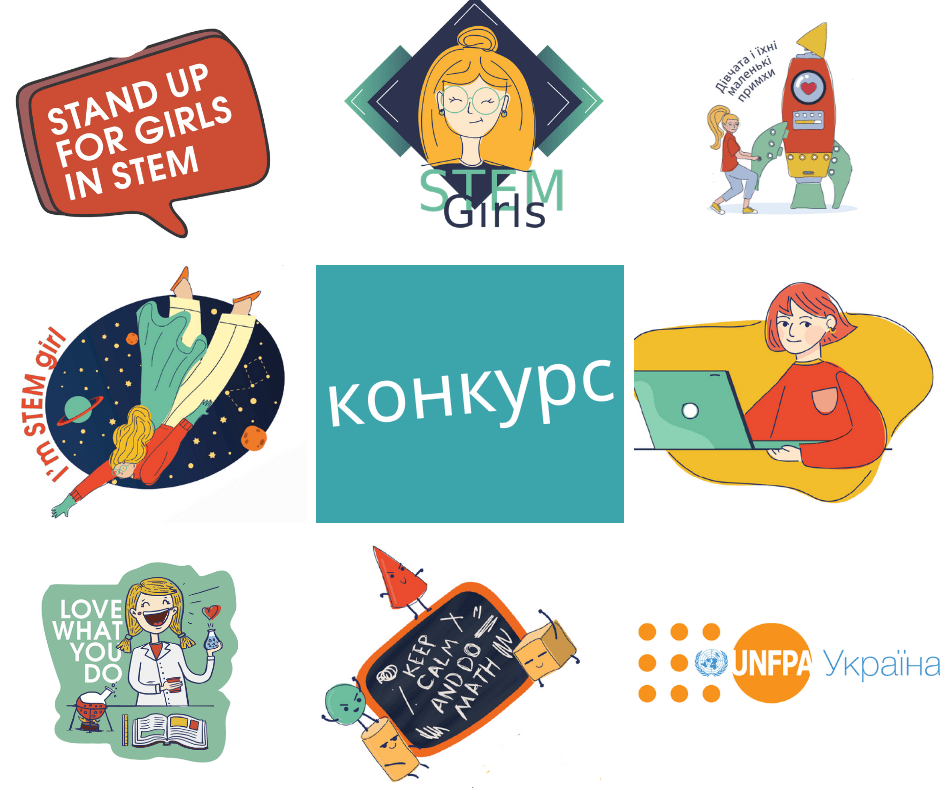As part of the competition, we write about women in STEM sciences. The main focus is biographical articles on women scientists in the STEM field. However, the topic of the competition can be interpreted more broadly and also welcome writings about women who are not scientists but are involved in the technical and natural sciences (for example, entrepreneurs in this field); overview topics (such as lists or articles about women in STEM as a concept).
If you are unsure whether your article is eligible for the competition, consult the organizing committee at stemwikimedia.org.ua or write to the Wikimedia Ukraine Project Manager discussion page.
Special nominations
- Ukrainian women in STEM
- Girls in STEM (articles about prominent schoolgirls and female students who have achievements in STEM)
- Science promoters (articles about women who are known for promoting science in STEM fields).
Winners of special nominations will receive individual prizes.
AIM OF THE COMPETITION
The competition is aimed at making women's achievements in science more visible. In both Ukraine and around the world, the sciences, technologies and engineering are still male-dominated industries [1]. In order to address this imbalance and help women build careers in STEM, it is important to disseminate information on women's achievements in the sciences. Wikipedia, as one of the most popular information resources in the world, is an important platform for this.
Help reduce the overall gender imbalance on Wikipedia, since articles about men are about four times more numerous than those featuring women. For example, in the Ukrainian version of Wikipedia, the number of biographical articles about women is less than 15% of the total number of biographical articles [k 3]. We want to change that.
HOW TO PARTICIPATE
1.Sign up for Wikipedia (obtain your nickname) or sign in to your account.
2. Create or supplement an article on Wikipedia during the competition (you can use the suggested topics or choose your own within the general theme of the competition).
3.Improve the article to meet at least the basic quality requirements:
- articles must be initiated or improved by Wikipedia contestants during the competition period;
- the text of articles may not contain machine translation without prior proofreading;
- articles or additions should be at least 3500 bytes in size (an average of 200-300 words; the size in bytes can be checked by clicking the View History tab at the top of the article);
- Wikipedia is an encyclopedia! Therefore, all articles should be encyclopedic style;
- Wikipedia has relevance criteria (in particular, certain criteria for the prominence of scientists). The basic principle is that you can create a separate Wikipedia article about a person only if there are several publications about them in independent reputable sources;
- Wikipedia does not tolerate plagiarism! Therefore, articles should contain text created by the contestant and should not infringe copyright;
- Wikipedia does not allow original research! Therefore, articles should be based on information previously published in reputable sources (newspapers/magazines/books, etc.) and should include links to these sources.
For more information on how to create a Wikipedia article and rules, use the help page.
4.Post the following line on the discussion page of the article:
{{Women in STEM|{{subst:REVISIONUSER}}}}
(if you post a template to the article created by another person, change «{{subst:REVISIONUSER}}» for the nickname of the article author)
Articles without this template may not be included in the competition submissions.
4.1. If article participates in special nominations, you need to also put on the discussion page the template {{Women in STEM/Ukrainian women}} (for special nomination «Ukrainian women in STEM») and/or {{Women in STEM/Girls}} (for special nomination «Girls in STEM») and/or {{Women in STEM/Science promoters}} (for the special nomination «Science promoter»).
5. The article can be improved prior to the competition period closing. The better each article is in terms of completeness and quality at the time of the end of the competition, the higher chances of winning you have.
6. Repeat steps 2 - 5 as often as possible.
The jury
The jury consists of experienced Wikipedians (Wikipedia contributors) with experience in STEM or gender studies, as well as invited experts.
Wikipedia authors
Brunei is a Ukrainian scientist in the fields of biology and the history of science, author of about 20 Wikipedia articles on scientists in Ukrainian.
Helixitta is a Ukrainian scientist in the field of biology.
Krutyvuss – Associate PhD of Pedagogical Sciences, Associate Professor of Political Science, Law and Philosophy, expert of the European Union Project "Equal Opportunities and Women's Rights in Ukraine" (2008-2011), implementer of the EU Erasmus+ Project "Gender Studies Curriculum: A Step for. Democracy and Peace in EU-Neighboring Countries with Different Traditions” (2015-2019).
Tohaomg is a Bachelor in Computer Science, a contributor to engineering and science related topics.
Invited experts
Nataliya Martynenko is a Program Assistant on Youth and Communication at the United Nations Population Fund Representative Office in Ukraine.
Tamara Martseniuk is a sociologist, a specialist in gender studies, a lecturer at the National University of Kyiv-Mohyla Academy.
Natalia Shcherban - Senior Researcher at the L.V. Pysarzhevkyi Institute of Physical Chemistry of the NAS of Ukraine, winner of last year's Ukrainian L'Oréal - UNESCO Award for Women in Science.


